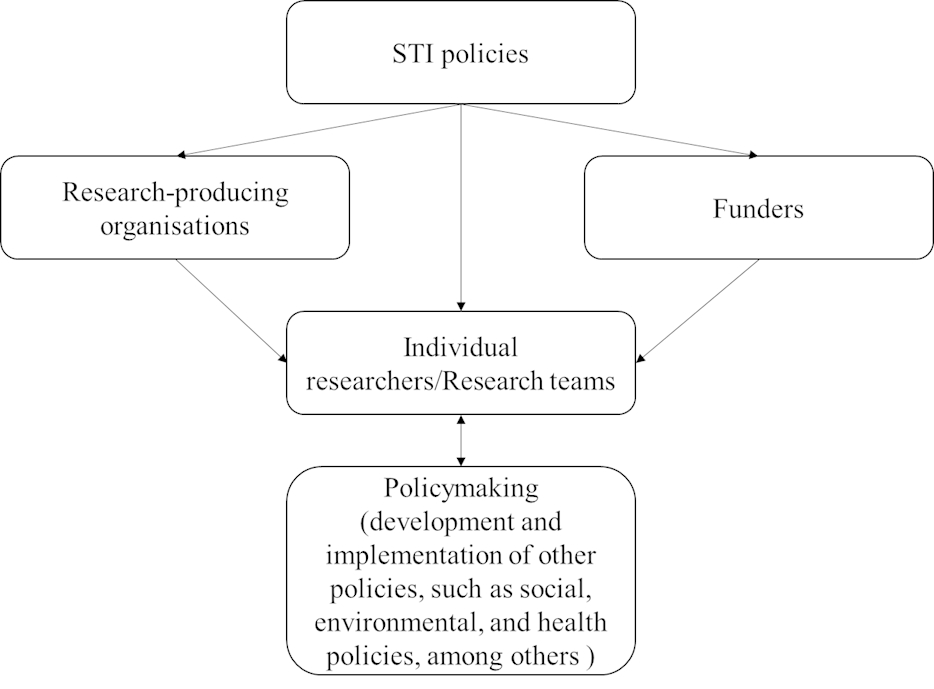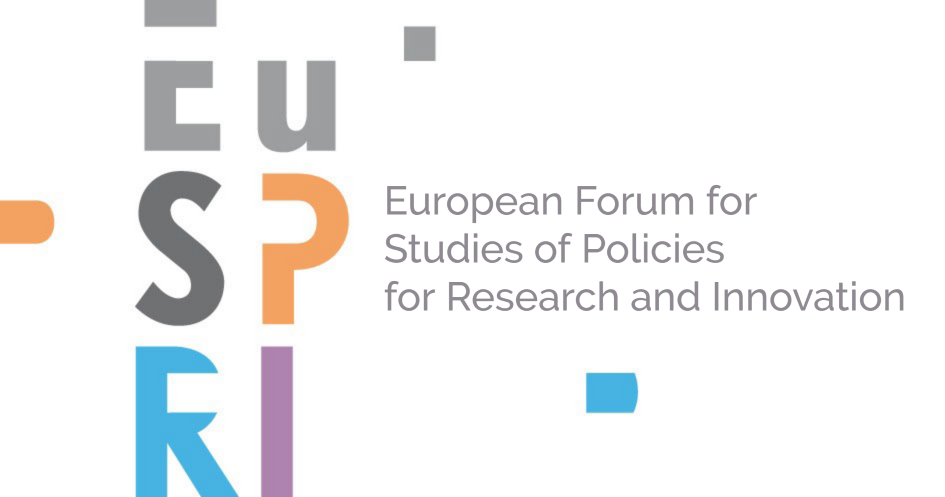Rake, Bastian (Maynooth, Co Kildare (IE) Maynooth University, Ireland)
Creating societal benefit through research-policy engagement
Authors: Bastian Rake, Syahirah Abdul Rahman, Dr. Luisa Veras de Sandes-Guimaraes, Daryna Dvornichenko, Magnus Gulbrandsen, Johannes König, Oscar Llopis, Peter McNamara, Susanna Menis, Olga Ryazanova, Sehrish Shahid
Keywords: Collaboration between academic researchers and policymakers, Co-creation of knowledge, Impact assessment, Societal impact through engagement, STI policies and other policies
Abstract
Research-policy engagement is an important mechanism through which researchers can support and drive positive societal change. Science, technology, and innovation (STI) policies shape society by influencing the behaviour of researchers – a substantial proportion of whom are employed by academic institutions – and their motivation to engage with stakeholders who can drive societal change at scale, namely policy makers and policy practitioners at all levels, and increasingly, citizen scientists and community researchers. While some researchers are intrinsically motivated to seek societal impact through engagement with policy development and implementation, the presence of external incentives – created through STI policies – can mainstream this engagement to increase policy impact. Equally, STI policies can weaken the motivation to engage with policymaking. They can put heavy emphasis on the outcomes of other activities that compete for researchers’ time and allocate resources exclusively to those activities. It has long been recognized that incentive structures and reward systems steer researchers toward specific outcomes (Rau et al., 2018), often devaluing engagement in knowledge exchange with policymakers.
Productive collaboration between academic researchers and policymakers has traditionally been difficult for a variety of reasons – from incompatible professional cultures (Beech et al., 2022) to diverging interests and timeframes (e.g., Newman et al., 2016). Notwithstanding examples of successful co-creation of knowledge that generated impact on policy making (de Sandes-Guimarães et al., 2022) and of the use of research in policymaking (Thune et al., 2023), quantitative evidence shows limited engagement globally. Only a minority of research outputs have informed policies, and relatively few published policy documents display clear evidence of being informed by research (Bornmann et al., 2016; Szomszor & Adie, 2022). Researchers and policymakers can do more to engage with each other, and both communities can benefit from interventions that improve their alignment.
The limited use of research in policymaking underscores the importance of evaluating policy impact as a cornerstone of effective STI policy. Understanding to what extent investment in domestic research capacity results in value creation for society through research-informed policymaking is essential for decision-makers formulating STI policies and for national and international funders. At the national level, policy makers and policy practitioners are keen to understand the impact of each country’s researchers on policy formulation internationally, e.g., at the EU level. Nonetheless, the evaluation of policy impact remains a complex and contentious issue (Pearson, 2010; Reed et al., 2018), due to challenges such as causal attribution of impacts and time lags between engagement and impacts. This impedes the efforts to establish structural supports for research-policy engagement.
We propose a track that focuses on all interactions within research-policy ecosystem (see Figure 1 below) that helps translate STI policies into policy impact beneficial for society. Our track addresses the following questions of the EuSPRI 2025 conference:
• How can we strengthen the link between STI policies and other policies to better tackle major societal challenges?
• How can the impact of STI policy be assessed in a comprehensive sense?
Figure 1: Research-policy ecosystem

We welcome theoretical and evidence-based contributions in the following (and adjacent) areas:
• Influence of current STI policies on research translation into policy.
• Evidence-informed policymaking.
• Policy impact of academic institutions.
• Negative impacts of research translation into policy.
• Ethical aspects of research-policy engagement (e.g., those related to academic freedom).
• Motivations for and types of interactions with policymaking.
• Cross-country differences in research translation into policy.
• The role of citizen science and non-professional engagement in bridging the research-policy gap and enhancing evidence-informed policymaking.
• The role of industry engagement in the translation of research into policy.
• Actionable recommendations for STI policy development or implementation based on case studies of current policy-engaged research, including citizen science initiatives.
• Measuring research impact on policymaking and tracking research use in policymaking.
• Evaluation frameworks for policies promoting university-society interactions through citizen science initiatives.
The track will include several special thematic sessions, including sessions focused on a) experiences of policy-engaged research, b) ethics, negative impact and other critical aspects of policy impact, c) evaluation of policy engagement and impact, and d) successful models of citizen participation in research-policy dialogue. These sessions will provide a structured platform for researchers to share insights, critique existing models, and propose solutions for enhancing research-policy engagement.
We are interested in full or early-stage research papers that will stimulate thinking and debate among participants.
